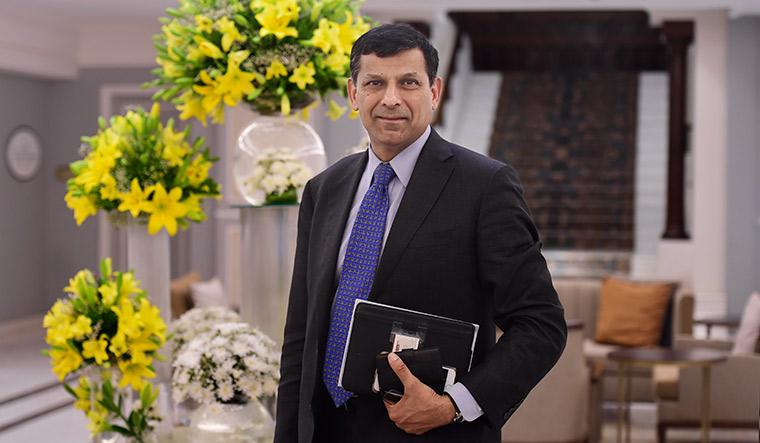The COVID-19 pandemic and the lockdowns across many countries have hit economies hard. Many developed countries have poured in trillions of dollars in fiscal and monetary stimulus to protect businesses and households. India does not have that kind of resources, given that it was already battling a slowdown even before the pandemic hit. While India has announced a Rs 20 lakh crore relief package, much of it has been the form of credit guarantees and some structural reforms.
Raghuram Rajan, the former governor of the Reserve Bank of India says that given India's limited resources and ability to provide a large fiscal stimulus, it must summon up the necessary political push for serious reforms and offer incentives for businesses, both foreign and domestic, to invest more here.
“I think if we can build the political consensus quickly and enact those reforms, that will be a bold political move and could be very helpful in time like this in creating the perception that India will grow going forward, even if we can’t provide relief to the extent other countries can,” Rajan said in a live session on LinkedIn.
“Given our lack of resources, we have to do much better on other fronts, both in repairing the economy—which is trying to fix the firms that come damaged out of the crisis—but also helping the households that come damaged and in creating the reforms that give foreign companies an incentive to invest in India, but also Indian companies to invest more in India, given the prospect of growth.”
Rajan was concerned that despite announcing a nationwide lockdown, coronavirus cases continued to rise in India, noting that countries that were not able to control the virus or that were unable to provide relief that industrialised economies have, will find it much harder to revive their economies.
“We had lockdowns in Europe, which seemed to have worked. But, there are some fresh outbreaks, for example in Spain. But also, countries like India and the United States have not succeeded in containing the spread of the virus and now it is actually increasing in India, rather than decreasing. These are reasons for concern because the longer the virus lasts, the more damage is done to the economy,” he said.
Rajan noted that several emerging countries were facing lost decades of growth and to avoid being in that group, India will need to take “strong,” “clever” and “sustained” actions.
Given the various relief measures India has announced so far, the fiscal deficit touched Rs 4.66 lakh crore or 58.6 per cent of the budget estimate in just the first two months of the current financial year and as per various estimates, it is expected to balloon to around 7.6 to 7.9 per cent in the year ending March 2021.
Rajan said that the only way that emerging markets like India will get fiscal room to spend is by creating a stronger sense that they can bring the fiscal deficit under control over the medium term.
“In India, what we can do is strengthen the commitment to a new fiscal responsibility bill, but also put in place targets for how much we will bring down debt over the medium term,” he said.
He also feels that India needs to become transparent about the budget.
“Part of the problem, why we came into this situation is we had budget numbers, which looked ok optically, but the reality was worse. So, we need more transparency,” he felt.
Amid the COVID-19 pandemic, geo-political tensions have also been rising between the US and China. In Europe, a carbon border tax is being considered. In India too there is a growing demand for boycotting products made in China, especially following a violent clash between the troops of the two countries on the Ladakh border in June.
Rajan noted that the impetus towards free trade had weakened even before the pandemic because its “biggest champion”—the United States —seemed to have “turned against it in a big way.”
However, he has a word of caution for emerging markets, especially, India, he feels, should recognise that its future lies in a more open world.
“We have to recognise something that, sometimes, our politicians don’t...constraints on imports actually become constraints on exports. If you can’t buy the input material cheaply, you cannot export finished products cheaply, because you have spent so much on input costs, way above what your competitors in the rest of the world spend,” he said.
He also feels that isolating China on the world stage was not the solution, but that there is room for dialogue where democracies could get together for a united front that would engage in dialogue with China, taking up issues like health, trade and investments.
“China, if it feels the rest of the world is against it, will react in a different way, than if it thinks it is invited to join a partnership where we relook at the rules of the game—but insist that everybody have stronger responsibilities, in terms of how they behave on various fronts, commercial, strategic, etc," he said.



